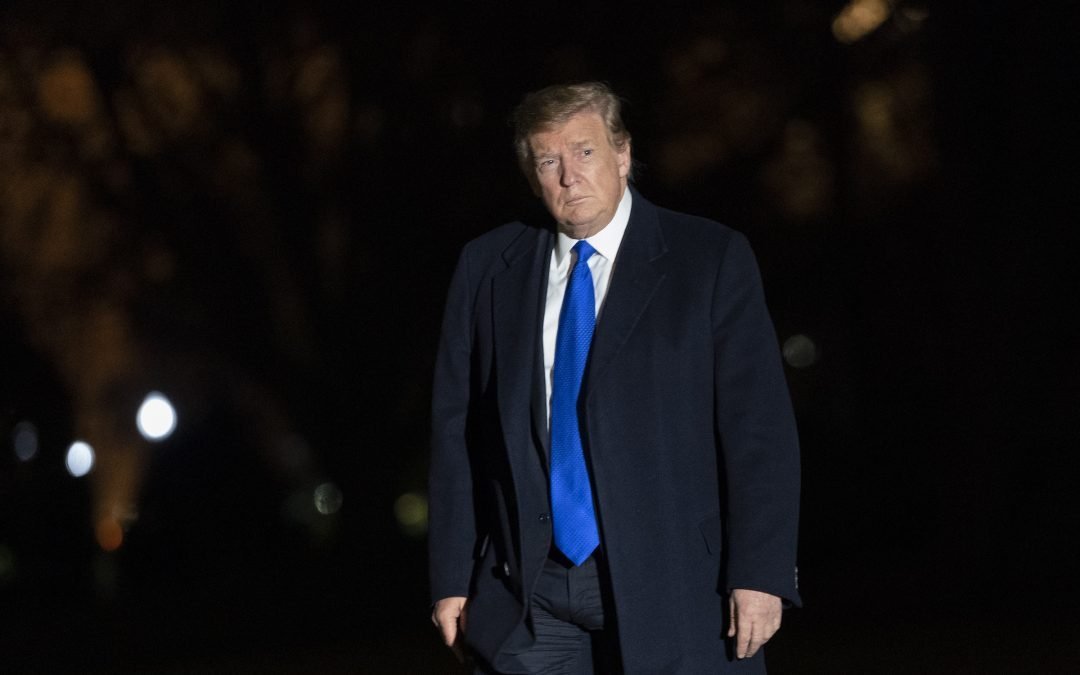President Trump’s campaign has purged some of its pollsters after a leak of dismal internal polls for the president that he denied existed.
Just two days before the president is set to kick off his bid for re-election, a top adviser said today that the campaign was cutting ties with three of its five pollsters to prevent further disclosure of survey data.
The polling showed Trump behind former Vice President Joe Biden in several key battleground states, including by double digits in Michigan, Wisconsin and Pennsylvania.
When the above numbers became public, Trump called them “fake polls.”
For days, aides to Trump have tried to figure out whom to point the finger at over the leak of the data, which jolted and infuriated the president.
But in continuing to discuss it, aides violated a long-held unofficial rule of campaigns not to comment publicly on internal polling, even if the numbers leak.
The resulting furor led to an effort by the campaign manager, Brad Parscale, to tighten control.
By removing several pollsters, the campaign hopes to shrink the circle of outside operatives who have access to information that could leak, according to the presidential adviser, who was not authorized to speak publicly.
The rupture of the team came even as the president and his advisers were preparing for a large and elaborate rally in Orlando, Fla., on Tuesday night to formally open his campaign for a second term.
Trump was hoping for a show of strength as Democrats had drawn increasing attention before their first debates on June 26 and 27.
The internal poll numbers, while not predictive, painted a bleak picture of the current state of the race for Trump, at least against Biden, when they were taken in March.
They showed a number of critical states at risk — not just Florida and the Midwestern states, but even some longtime Republican bastions like Georgia.
A Democratic state that Trump’s aides have insisted they want to put in play, Minnesota, appeared out of reach for the president.
The polling was reported on by The Times nearly two months ago without citing specific numbers.
Last week, The Times reported that Trump had told aides to deny that such polls existed and to say that other data in the survey showed him doing well.
Some aides to the president appeared to be using the episode to undermine one of his closest advisers, Kellyanne Conway, who was Trump’s final campaign manager in 2016 and is now his White House counselor.
Conway’s relationship with Trump, and the praise he has given her for his 2016 victory, have long stirred envy among other advisers to the president.
Her former firm, the Polling Company, was one of the ones to be ousted.
Conway no longer has any formal ties to the company, which was sold in 2017 to CRC Public Relations, a well-known conservative advocacy firm.
In addition to Conway’s former firm, the Trump adviser said the campaign would cut ties with Adam Geller, a pollster for former Gov. Chris Christie of New Jersey, and Michael Baselice, a pollster for former Gov. Arnold Schwarzenegger of California, both late additions to Trump’s campaign in 2016.
Two other pollsters, Tony Fabrizio and John McLaughlin, will remain with the campaign.
Fabrizio conducted the March survey for Trump.
As a pollster, he worked for Trump’s company many years ago, but he was brought into the 2016 campaign by Paul Manafort, Trump’s former campaign chairman, who was one of the people charged by the special counsel, Robert Mueller.
McLaughlin has known Trump for years and did informal work for him in 2011 when the real estate developer was considering running for president.
In recent weeks, Trump has angrily denied receiving polls showing him losing or instructing aides to deny them.
“Those polls don’t exist,” Trump told ABC News in an interview broadcast on Thursday. “I just had a meeting with somebody that’s a pollster and I’m winning everywhere, so I don’t know what you’re talking about.”
But on Friday, ABC reported specific information from that supposedly fake polling.
The data obtained by ABC showed Biden leading Trump 55 percent to 39 percent in Pennsylvania, 51 percent to 41 percent in Wisconsin and by seven points in Florida.
The president was leading in Texas, a bulwark for Republican presidential candidates for four decades, by just two points.
When approached by the network with the numbers, Parscale confirmed that they were accurate.

